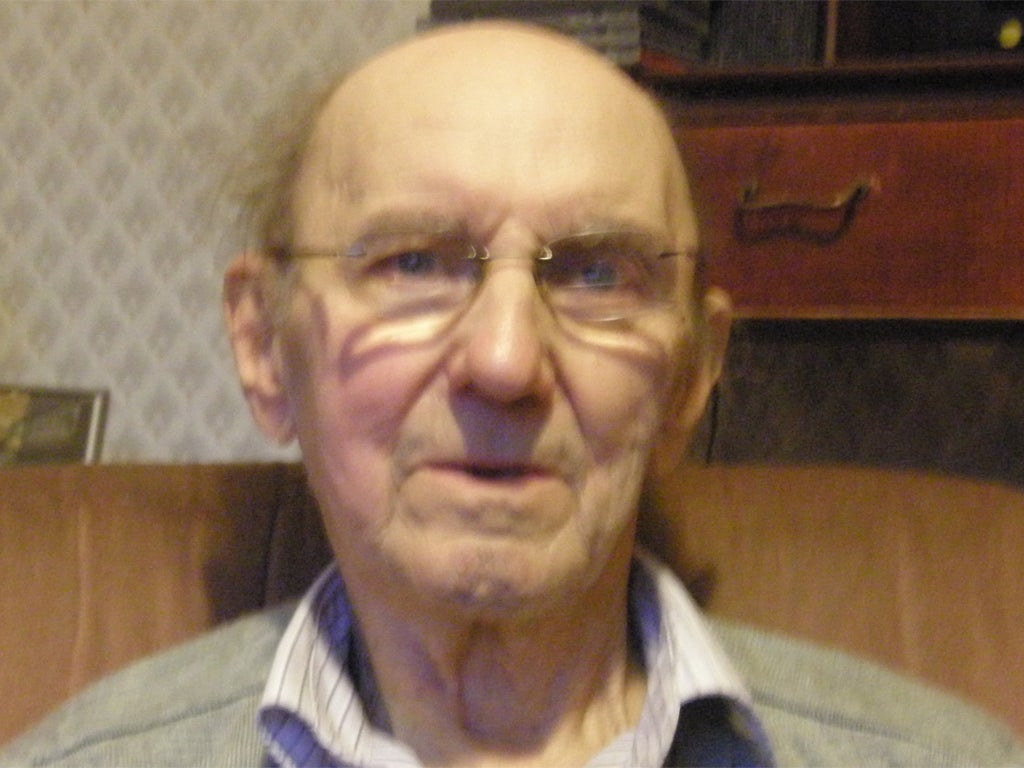Allan Horsfall: Influential gay rights campaigner

Your support helps us to tell the story
As your White House correspondent, I ask the tough questions and seek the answers that matter.
Your support enables me to be in the room, pressing for transparency and accountability. Without your contributions, we wouldn't have the resources to challenge those in power.
Your donation makes it possible for us to keep doing this important work, keeping you informed every step of the way to the November election

Andrew Feinberg
White House Correspondent
The death of Allan Horsfall marks the end of an era. He was the last surviving founding father of the modern LGBT (lesbian, gay, bisexual and transgender) rights movement. In 1964, from his miner's cottage in Atherton, Greater Manchester, he formed the North West Committee for Homosexual Law Reform, which mutated into the Campaign for Homosexual Equality in 1971. At its height CHE boasted over 130 local groups and more than 5,000 members. It was the most successful attempt in this country to create a mass-membership democratic LGBT organisation. If its legislative gains were small, it changed the lives of thousands of individuals through its groups, encouraging self-respect through “coming out”.
Allan Horsfall was born in 1927 and brought up by grandparents in a pub on the edge of the Yorkshire Moors. After Nelson Grammar School he did National Service in the RAF. It was in an ex-Servicemen's Club in 1947 that he met his life partner, Harold Pollard, a primary school teacher 20 years his senior. They remained together until Harold's death in 1995.
Horsfall was working for the Coal Board as a clerk. Like many of his generation, he was radicalised by the Suez Crisis in 1956. He joined the Labour Party and within two years was elected as a councillor in Nelson. By 1960 he was trying to get a motion through his local association, calling on the Party to adopt the implementation of the Wolfenden Report as official policy; Wolfenden had recommended the decriminalisation of consenting male homosexual acts in private in 1957. Caucuses and procedural chicanery blocked him at every turn; many worthies objected to the mere mention of the subject in the presence of women, who were also often asked to leave the public gallery at gay sex trials.
Allan supported the Homosexual Law Reform Society from its inception in 1958, but was frustrated at the lack of involvement of supporters especially outside London. After several years spent overcoming reluctance in the London organisation, he got the blessing of their general secretary to start what was intended to be a compliant satellite, lobbying Northern MPs. Horsfall's decision to use his own address and phone numberwas an act of considerable bravery. Several Labour MPs in industrial constituencies opposed decriminalisation because "the miners would not stand for it".
There was some personal cost: he was shunned in local gay bars by people who feared he would bring the police down on them. His partner was warned he should not be seen in public with Allan. They ignored this.
Once gay sex was partly decriminalised in1967, the North West Committee, with Horsfall as secretary and guiding force, could take wing. In Manchester he recruited in local gay bars and involved bar owners. It was clear that what lesbians and gay men needed was not social workers but social facilities. Esquire Clubs answered this need. Modelled on working men's clubs, they would be co-owned by members and offer a mixture of social, cultural and self-help facilities. For three years Horsfall and his lifelong friend, the journalist Ray Gosling, battled to get at least one club off the ground; but becoming a member of Esquire was the equivalent of outing yourself, and few signed up. In several places, licences were refused.
In Burnley in 1971, CHE, at Horsfall's instigation set up a public meeting to confront the Christian alliance that opposed a local club. In a packed and heated gathering Allan invited all the homosexuals present to stand up. Over a hundred did so; it was one of the first mass coming-out demonstrations in the UK, certainly the first outside London. The skinheads who lined the wall (whom the police had deprived of their bovver boots and umbrellas as they arrived) were cowed. It was a symbolic coming-of-age moment.
Horsfall had suffered a severe heart attack in 1970, and increasingly took a back seat, becoming in 1974 President for Life of CHE. However, part of his genius lay in recruiting the right people. A resolutely uncharismatic man of shining integrity, he held together his star performers and his often-fractious troops through the respect he inspired.
Horsfall was also chairman of his local CND, and a prodigious letter-writer to The Guardian, The Independent and local papers. Those who nursed him during his last illness described him as 'a gentleman', a word which attached itself to him all his adult life. He will remain a crucial figure in British LGBT history.
Allan Horsfall, gay rights activist: born 20 October 1927; partner to Harold Pollard (died 1995); died Bolton 27 August 2012.
Subscribe to Independent Premium to bookmark this article
Want to bookmark your favourite articles and stories to read or reference later? Start your Independent Premium subscription today.
Join our commenting forum
Join thought-provoking conversations, follow other Independent readers and see their replies
Comments